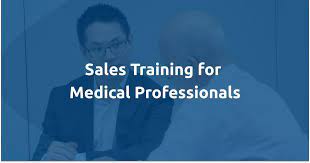In the fast-paced and highly competitive field of medical device sales schools hinges on more than just product knowledge and interpersonal skills; it requires comprehensive and targeted training. From understanding complex medical terminology to navigating regulatory requirements, medical sales representatives must be equipped with the right tools and knowledge to excel in their roles. In this article, we delve into the specific strategies and approaches that drive effective medical sales training, empowering professionals to thrive in this dynamic industry.
- Tailored Product Training: Effective medical sales training begins with a deep understanding of the products or services being offered. Sales representatives must be well-versed in the features, benefits, and unique selling points of each product in their portfolio. Training programs should provide comprehensive product knowledge through a combination of interactive presentations, hands-on demonstrations, and case studies. Additionally, incorporating real-life scenarios into training sessions allows representatives to better understand how to position products to meet the diverse needs of healthcare providers and institutions.
- Industry Compliance and Regulatory Training: Compliance with industry regulations, such as HIPAA (Health Insurance Portability and Accountability Act) and FDA (Food and Drug Administration) guidelines, is paramount in medical sales. Training programs should include modules dedicated to educating representatives on these regulations, emphasizing the importance of ethical conduct and adherence to compliance standards. Role-playing exercises and case studies can help reinforce key concepts and ensure that representatives are equipped to navigate compliance challenges effectively.
- Effective Communication Skills: Strong communication skills are essential for building rapport with healthcare professionals and effectively conveying the value proposition of products. Training should focus on honing verbal and non-verbal communication skills, including active listening, empathy, and persuasive techniques. Role-playing exercises can simulate various sales scenarios, allowing representatives to practice their communication skills in a controlled environment and receive constructive feedback from trainers and peers.
- Continuous Professional Development: The landscape of medical sales is constantly evolving, with new products, technologies, and industry trends emerging regularly. To stay ahead of the curve, sales representatives must commit to continuous learning and professional development. Training programs should incorporate ongoing education initiatives, such as webinars, workshops, and online courses, to keep representatives informed about the latest advancements in healthcare and sales techniques. Encouraging participation in industry conferences and networking events also provides opportunities for representatives to expand their knowledge and build relationships within the medical community.
- Performance Evaluation and Feedback: Regular performance evaluation is essential for identifying areas of strength and opportunities for improvement among sales representatives. Training programs should include mechanisms for assessing performance, such as sales metrics, customer feedback, and proficiency exams. Constructive feedback from managers and mentors can help representatives refine their skills and address any gaps in knowledge or performance. Additionally, recognizing and celebrating achievements incentivizes continuous improvement and fosters a culture of excellence within the sales team.
In conclusion, effective medical device sales schools is a multifaceted endeavor that requires a strategic approach and ongoing commitment to professional development. By providing tailored product training, emphasizing compliance and regulatory standards, honing communication skills, fostering continuous learning, and implementing performance evaluation mechanisms, organizations can empower their sales representatives to excel in the competitive landscape of medical sales. With the right training and support, professionals can elevate their performance, drive business growth, and make a meaningful impact on the healthcare industry.





